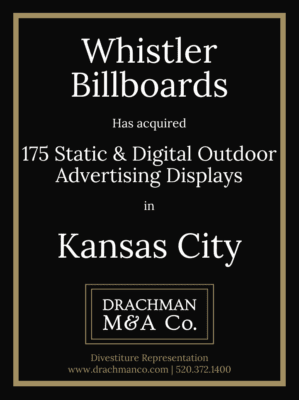 Clear Channel Outdoor has petitioned the US Supreme Court to hear its challenge of Baltimore’s targeted tax on billboards, which was enacted in 2013. Courts in Maryland ruled in favor of the City; Clear Channel wants the US Supreme Court to take the case (Clear Channel Outdoor v. Henry J. Raymond, Director, Department of Finance of Baltimore City).
Clear Channel Outdoor has petitioned the US Supreme Court to hear its challenge of Baltimore’s targeted tax on billboards, which was enacted in 2013. Courts in Maryland ruled in favor of the City; Clear Channel wants the US Supreme Court to take the case (Clear Channel Outdoor v. Henry J. Raymond, Director, Department of Finance of Baltimore City).
The City of Baltimore replied to Clear Channel’s petition on September 15. Insider provides you with highlights of what stakeholders are saying in this important case; we will continue to keep you up to date.
Clear Channel’s position
“The Court’s guidance . . . is sorely needed. The decision below (in the Maryland courts) conflicts with decisions” of federal and state courts “and guts the First Amendment’s protections for non-traditional speech platforms. And if the decision is allowed to stand, there is a significant risk that governments will use laws targeting particular speech platforms and speakers as a means of raising revenue while censoring unpopular content. The Court should grant review to make clear that the First Amendment does not tolerate such laws.”
City of Baltimore’s reply (urging the Supreme Court not to take the case)
“All the excise tax does is take a small portion of (Clear Channel’s) considerable profits and use that money to fund government services.”
“The economic transaction is what is taxed, not its subject.”
“(Clear Channel’s) efforts to find a conflict by diving into legally and factually dissimilar cases border on the comical.”
“Clear Channel’s two primary arguments on the merits rely on baseless fictions that it seeks to perpetuate through force of repetition. The first is that commercial billboard operators are members of the press. They are not. Clear Channel’s second baseless fiction is that Baltimore’s excise tax targets a small group of speakers. It does not.”
The US Chamber supports Clear Channel (urging the Supreme Court to take the case)
“This case presents an exceptionally important First Amendment question: May a state or municipal government impose a tax that falls solely on a small, identified group of companies whose business is to facilitate public speech? The decision of the Maryland Court of Appeals below, if left to stand, would afford local legislatures and tax authorities free rein to impose such a targeted tax without meaningful First Amendment scrutiny.”
OAAA on behalf of the industry
“This Court long ago recognized that targeted taxes singling out particular publishers of speech create intolerable First Amendment concerns. Parting ways with other lower courts applying these protections, the Maryland Court of Appeals concluded that this Court’s precedents protect only the ‘institutional press,’ and not any other protected speech or speaker, from targeted taxation.”
A similar tax case is pending at the Ohio Supreme Court. Norton Outdoor and Lamar challenged Cincinnati’s targeted billboard tax on constitutional grounds; a ruling is expected this fall.
[wpforms id=”9787″]
Paid Advertisement

















